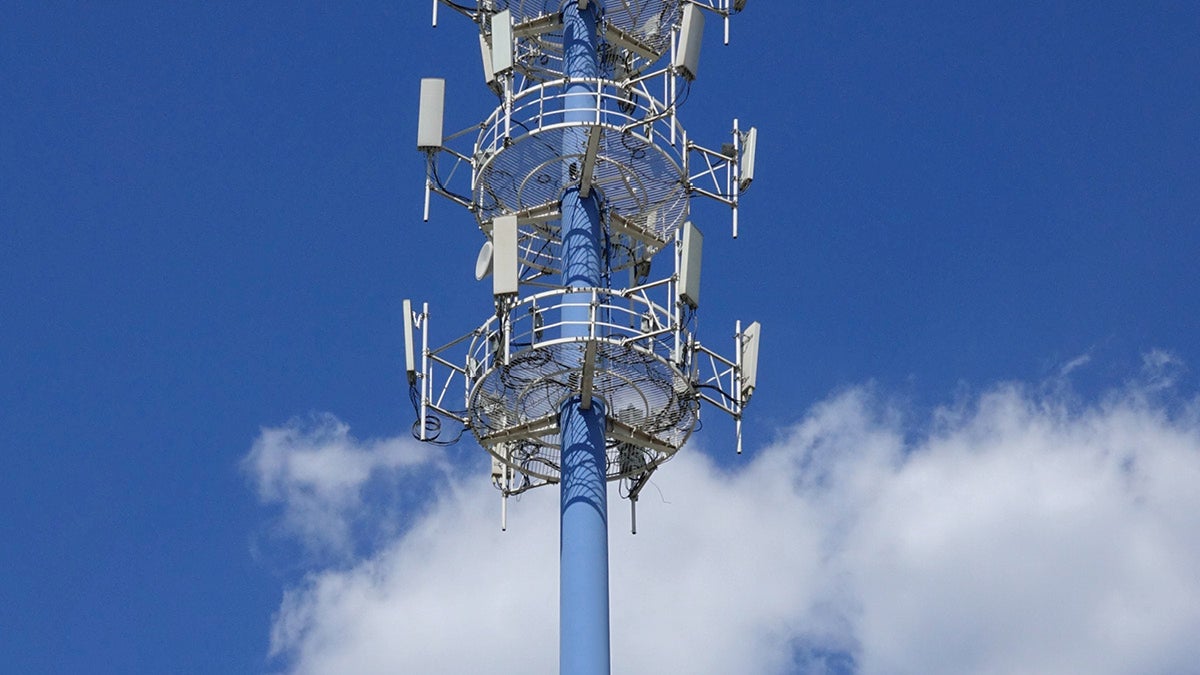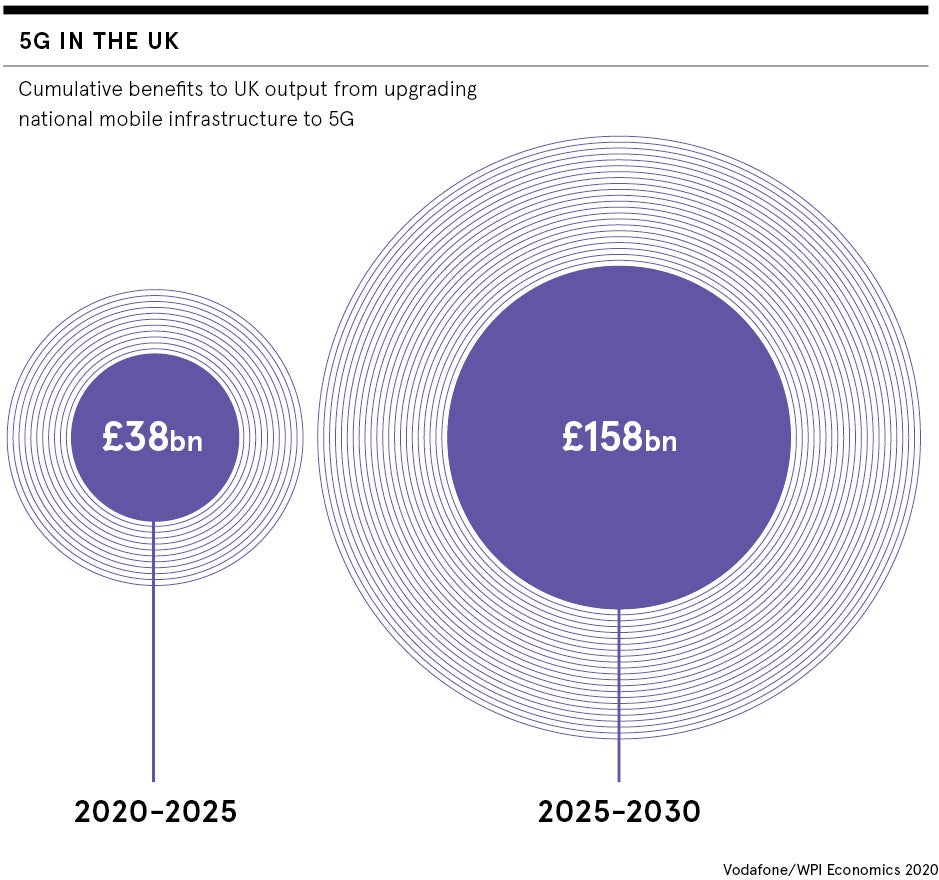
It’s said the arrival of 5G will power the fourth industrial revolution. The fifth-generation mobile technology promises to connect greater numbers of devices with a high-speed, low-latency network that enables data transmission in real time. As a result it could pave the way for more sophisticated, productive ways of working.
“It was always going to change the world,” says David Pugh, manufacturing partnerships lead at Digital Catapult. “There was never any doubt about that.”
So with the global economy facing a significant downturn due to the coronavirus pandemic and the UK experiencing the deepest recession since records began, could 5G be a driver of economic recovery in a post-COVID world?
Economic development created by 5G
5G has the potential to significantly bolster economic growth. Over the next ten years, it could add as much as £158 billion to the UK economy and lead to the creation of new jobs and business opportunities, according to a report by Vodafone. Research by Barclays suggests 5G could supercharge GDP by up to £15.7 billion a year by 2025.
Unlike 4G, 5G has been designed for enterprise applications. While 4G radically changed the consumer space by leading to the development of social networking sites such as TikTok, Airbnb and Uber, 5G could revolutionise enterprise and the business-to-business side, says Dimitris Mavrakis, senior research director at global tech market advisory firm ABI Research.
5G speed in towns and cities
An improved network would mean there’s no need to search a coverage checker to see whether an area has internet connection. Faster 5G speed and better connectivity could create economic growth in regions of the UK outside London.
“That’s why we see it as a real positive,” says Matthew Evans, director of markets and former chief executive of the Broadband Stakeholder Group. “Because it would bring the UK onto a more level footing.”
West Midlands 5G (WM5G) was set up to accelerate the economic benefits of 5G throughout the region. “We want to utilise 5G’s potential to drive economic and social recovery by accelerating rollout across the West Midlands,” says WM5G’s managing director Robert Franks.
The organisation aims to improve 5G speed and connectivity, transform transport infrastructure, improve healthcare and accelerate skills development. “We believe it could absolutely create jobs and attract investment,” says Franks.
One of the aims of WM5G is to support innovation in manufacturing in the West Midlands, as it’s an industry that contributes significantly to GDP. “The sector’s been pretty hard hit by COVID-19,” says Franks. But with 5G, he believes it’s possible to improve productivity and efficiency.
Industries likely to benefit from 5G coverage
5G has the potential to impact almost every industry, but manufacturing is one of the key sectors that could benefit from its rollout. For example, a stronger network could enable live footage of packages as they are transported and flag up any problems in real time, says Pugh at Digital Catapult. “Getting data [from operating machines] in real time is also really valuable inside the factory,” he says.
Faster speed in real time
Many other industries are expected to benefit, from utilities and energy, to smart cities and transportation. Creative and arts industries could also be given a boost, says Emily Savage, creative sector lead of Digital Catapult.
5G creates opportunities for creative companies to use virtual reality to work remotely and to reach wider audiences. “There’s huge excitement about opening up the ability to produce new remote services,” says Savage.
Thomas Winsor, creative director of Reality Check Productions, says the ability to produce 3D augmented reality shows could transform the sector. “If you have a theatre in London and you want to reach an audience in Japan, it’s very expensive to tour,” he says. “But if we had the ability to broadcast to many people and to reach an international audience with a strong internet connection regardless of their local wired connection, that would be huge.”

Increase human capital
In more general terms, this increased appetite for remote connectivity could continue to facilitate a new type of work and a more intelligent economy driven by artificial intelligence (AI). “COVID has accelerated the appetite for remote working and remoteness is at the heart of 5G,” says Savage.
5G networks could also create more jobs and increase human capital. “There is a fear that AI will take away jobs, but at the end of the day we think it will create more jobs,” says Mavrakis at ABI Research. “We expect 5G will improve efficiency for workers and open up opportunities, rather than take away jobs.”
5G in the UK and a new way to work
Research from the British Chambers of Commerce, in partnership with Mobile UK, found that almost 80 per cent of respondents expect to either maintain or increase their lockdown levels of mobile-network usage over the next 12 months. “We expect the new normal to continue,” says Gareth Elliott, head of policy and communications at Mobile UK. “Society is changing in the way it works and operates.”
In a post-COVID world, 5G could be a key driver of economic growth and recovery across multiple industries, but it will not solve all problems. “It will be a component of the recovery; it will not be the recovery itself,” says Mavrakis. “5G is just a piece of the puzzle. How big a piece depends on the willingness of the government to stimulate adoption and on sectors themselves to adopt.”

It’s said the arrival of 5G will power the fourth industrial revolution. The fifth-generation mobile technology promises to connect greater numbers of devices with a high-speed, low-latency network that enables data transmission in real time. As a result it could pave the way for more sophisticated, productive ways of working.
“It was always going to change the world,” says David Pugh, manufacturing partnerships lead at Digital Catapult. “There was never any doubt about that.”
